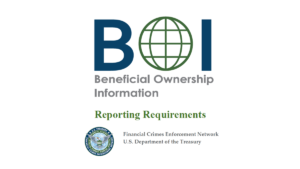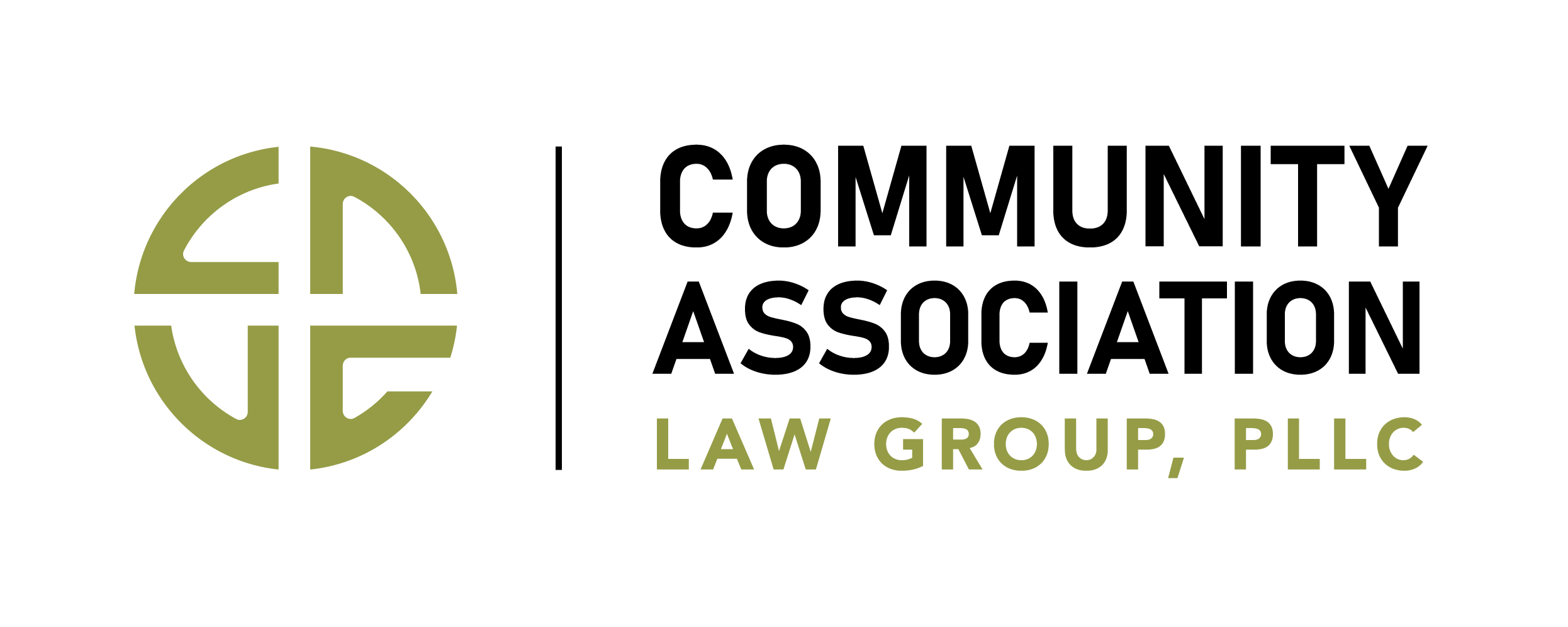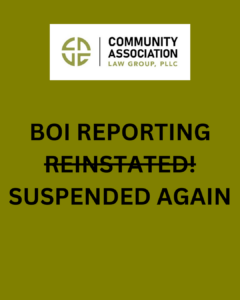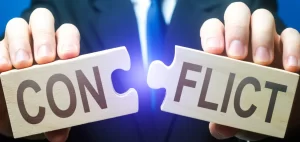As part of the recently enacted Corporate Transparency Act, the Federal Government is requiring all existing corporations – including community associations – to submit information to the Financial Crimes Enforcement Network (“FinCEN”) identifying the “beneficial owners” of the corporation. Beneficial Owners are those entities or people who directly or indirectly own or control a company, like when “Condominium Developer, LLC” has ten lines below it showing that that company is owned by another company that owns another company that owns another company and so on. As the FinCEN website advises, “This law creates a new beneficial ownership information reporting requirement as part of the U.S. government’s efforts to make it harder for bad actors to hide or benefit from their ill-gotten gains through shell companies or other opaque ownership structures.”
There is a reporting exemption for “tax-exempt entities,” but this only applies to entities that are tax-exempt under Section 501(c)(3) of the Internal Revenue Code, which are charitable organizations, certain tax-exempt political organizations, and certain trusts. HOAs and condos may have certain tax exemptions, but they are not charitable organizations.
All corporations formed prior to this year will have until January 1, 2025 to submit their initial Beneficial Owner Information Report (“BOIR”) electronically through a secure filing system at https://boiefiling.fincen.gov. The form can be filled out online or a pdf form can be printed and submitted. There is no fee for submitting the report. You do not need to be a lawyer or CPA to fill out the form, but you will need to provide your contact information. The form will also ask you about “Company Applicants,” but this only applies to corporations created afterJanuary 1, 2024, so for all existing communities, this section can be skipped.
For condos and HOAs, the reporting will be very straightforward because the association entity itself has no other owners. However, it appears that a member of the Board of Directors could be considered a “beneficial owner” if the director:
- Exercises substantial control over the company; and
- Owns (or has a voting interest) of at least 25%
Despite some information in blogs and other sources indicating that board members may be beneficial owners, the FinCEN FAQs clarify that not all board members will be considered beneficial owners;
“D.9. Is a member of a reporting company’s board of directors always a beneficial owner of the reporting company?
No. A beneficial owner of a company is any individual who, directly or indirectly, exercises substantial control over a reporting company, or who owns or controls at least 25 percent of the ownership interests of a reporting company.
Whether a particular director meets any of these criteria is a question that the reporting company must consider on a director-by-director basis.”
The “substantial control” will probably not apply to most directors, but developer-controlled communities may need to identify the developer-appointed directors as beneficial owners if they exercise such control. The ownership requirement doesn’t really track with HOAs or condos since the members do not generally own shares in the company, but instead may own individual portions of the property managed by the company, but it appears that members who own more than 25% of the lots or units or have more than 25% of the allocated interests may need to be identified as beneficial owners. Hopefully, FinCEN will issues some updated FAQs to address community association requirements directly.
In addition to the names and addresses of any beneficial owners, according to the Small Entity Compliance Guide produced by FinCEN, the information to be reported includes:
- The corporation’s legal name;
- Any trade names, “doing business as” (d/b/a), or “trading as” (t/a) names;
- The current street address of its principal place of business
- Its jurisdiction of formation or registration;
- Its Taxpayer Identification Number
Most of this information can be found in your community’s articles of incorporation, but you may need to contact your bookkeeper to locate your TIN and enter that number as the “EIN” on the form. Please note that a PO Box will not be accepted for the street address.
If you want to learn more about the requirement, go to the FinCen / BOI website here or check out the BOI Small Entity Compliance Guide here. I bet you can’t wait!






